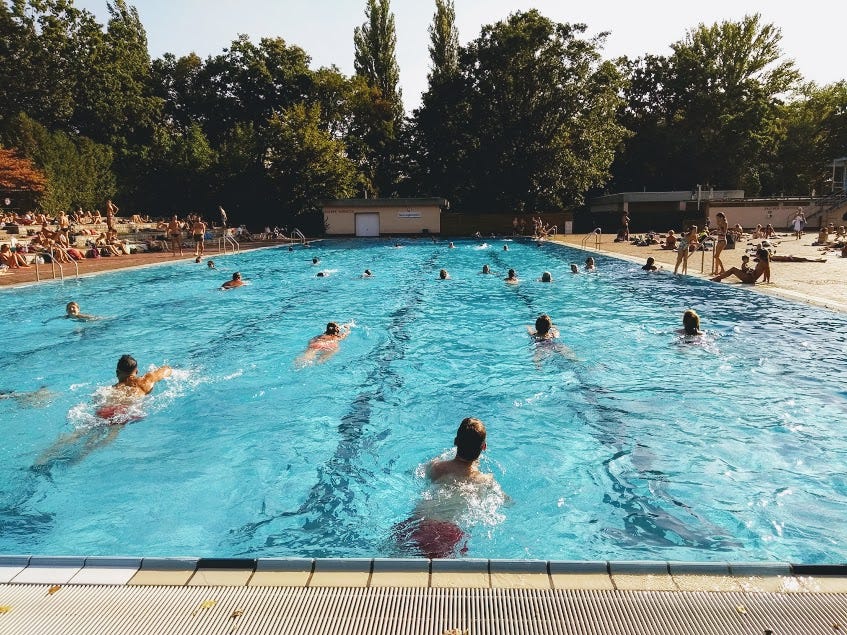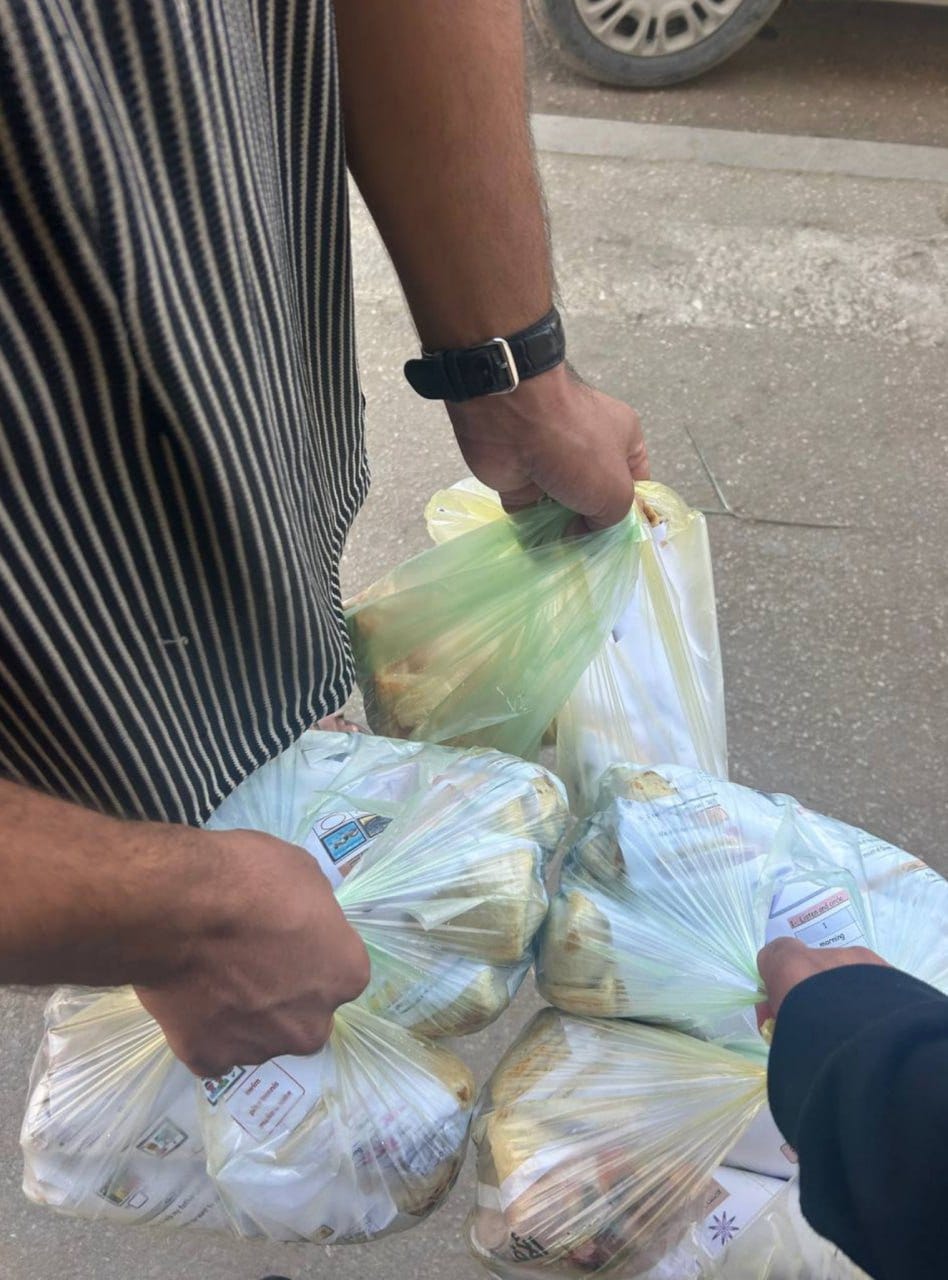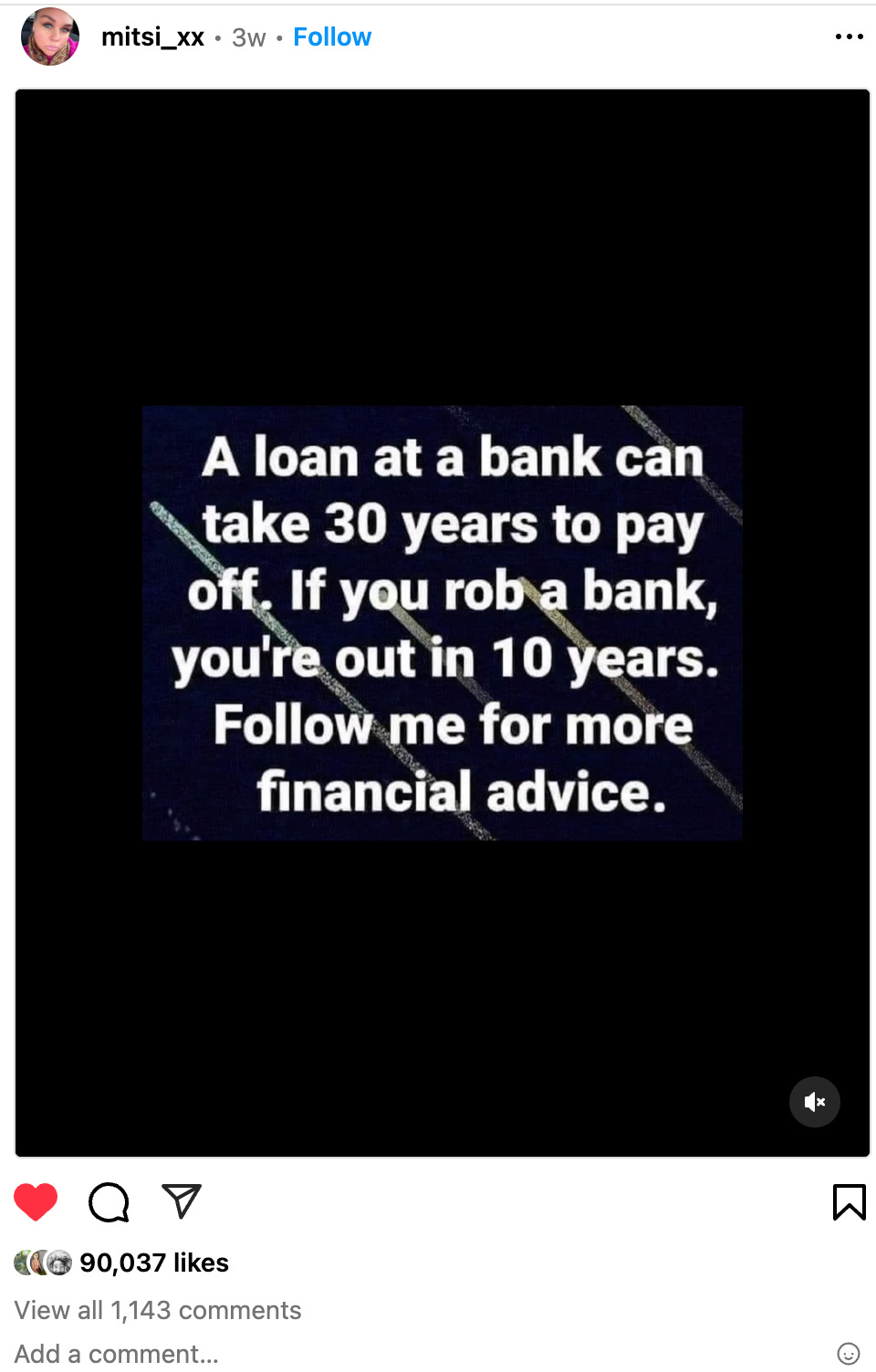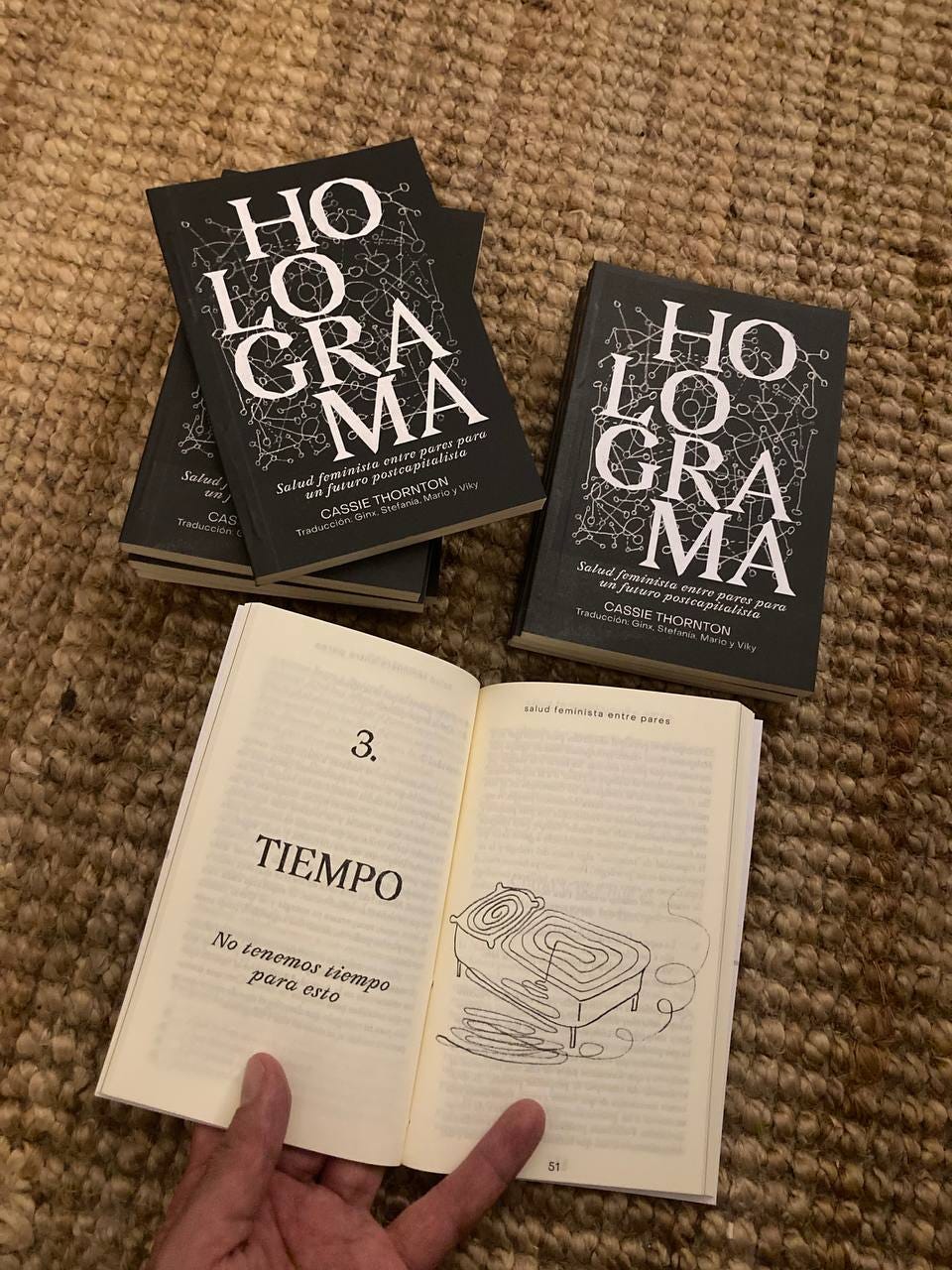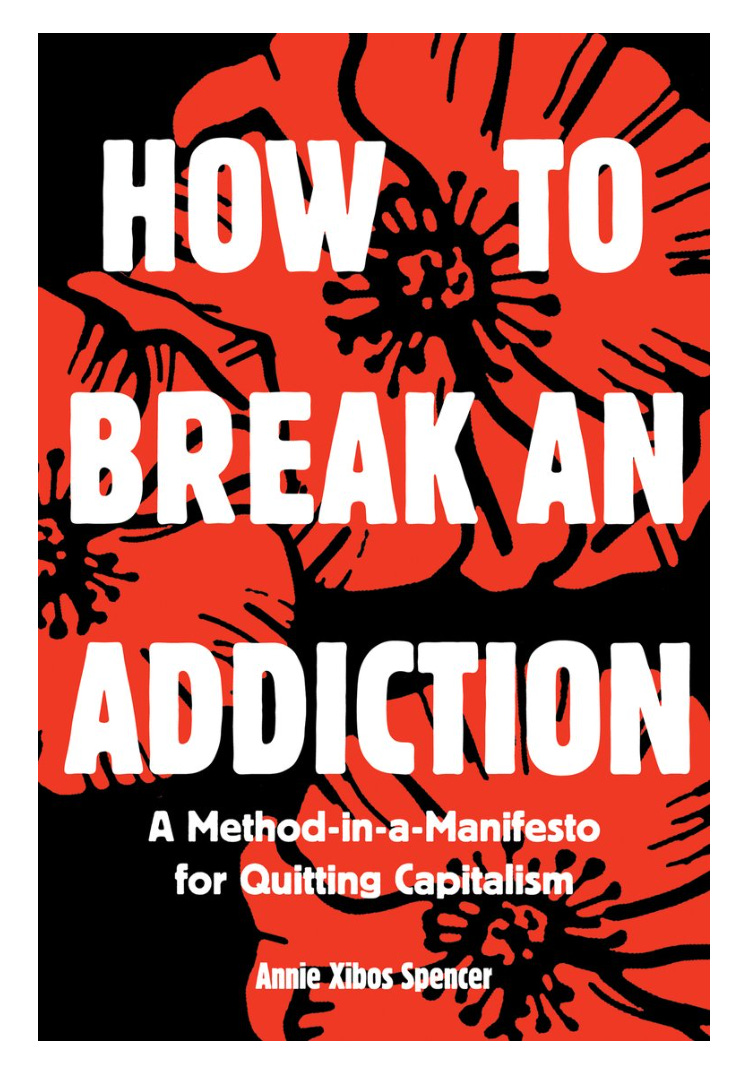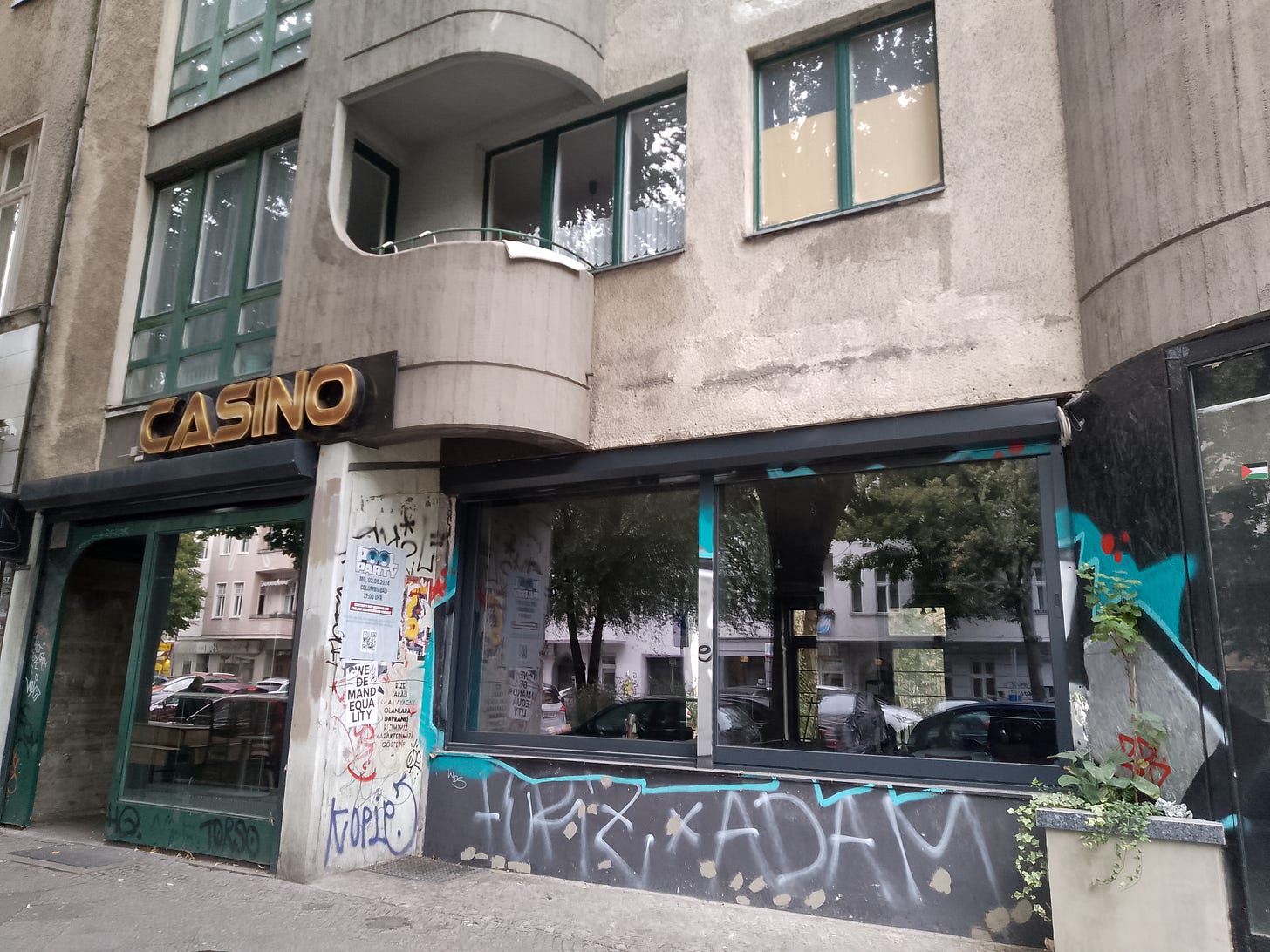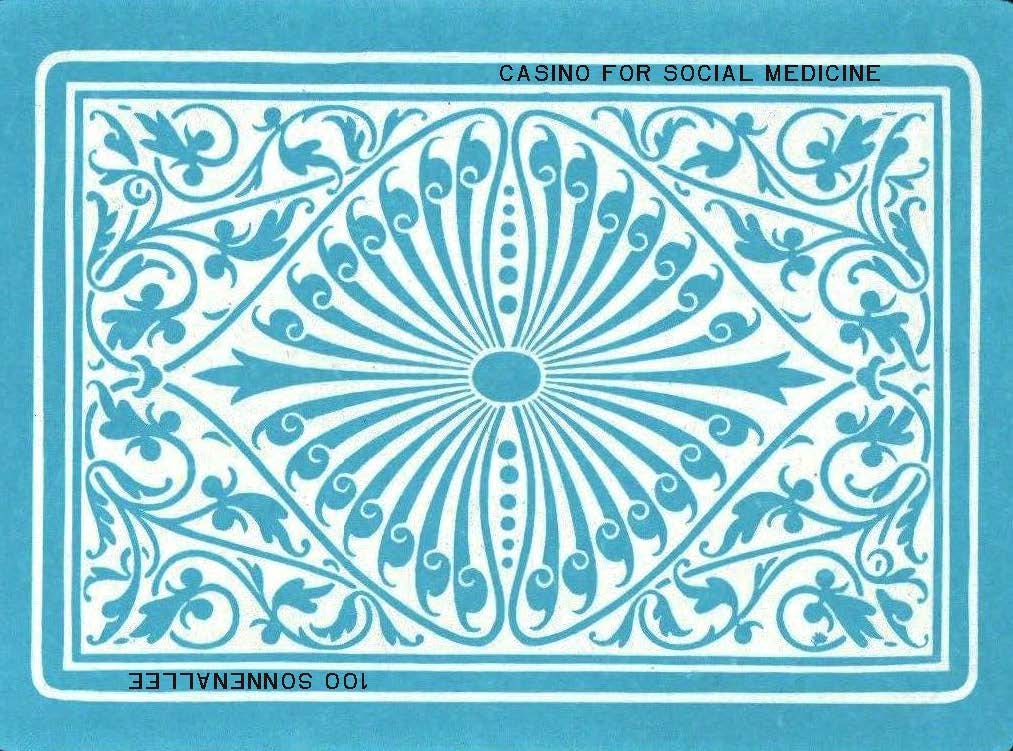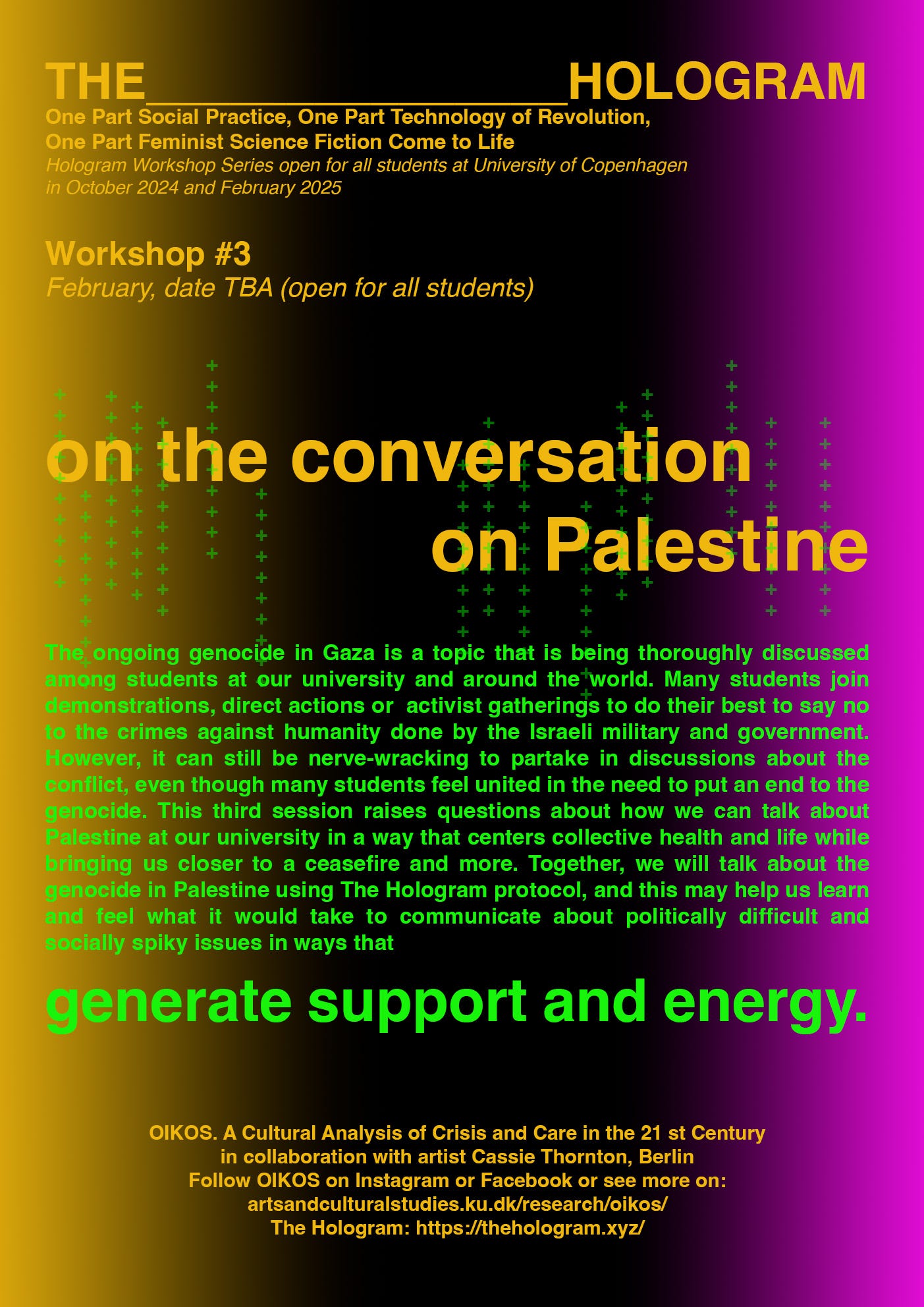Primary Care Responsibility
As you might have guessed (and know too), my relation with Ayowb in Gaza is also one of care-giving and taking. It is my primary care responsibility I feel. Materiality counts, but it really is just spending time together (whatever can be spent).
-text message from Pujita
I'm working with Pujita Guha as well as Dea Antonsen, Aziza Harmel, Ida Bencke on a nearly indescribable (for now) series of projects for Hosting Lands, a distributed long term exhibition experiment. It's so rare to get to speak with someone, like Pujita, who can tell me what I didn't have the words for. She recently explained to me how her primary care responsibility is with a person she communicates with, gives and receives care with, and supports by fundraising in Gaza. It was so helpful to hear her describe and prioritize the care relationship so clearly. I too have a person in Gaza who I've grown to feel with and through. Without romanticizing anyone, I don't know if I would have stayed spiritually alive, and stayed believing in the world if it wasn't for Ghadir. She survives so bravely, with poetry and ingenuity, in the ruins. If you don't read any further, please consider supporting her through a campaign we are hosting together.
All of my friends, and friends of friends also support me to support her in so many ways, and it keeps me alive. Many many people I know are doing a lot to get money to people in Gaza so they can afford very expensive food, water, infrastructure and bare survival as money and supplies are held hostage by Israel. If you are interested in helping, if you have experience with crypto, if you want to send money, if you want to support a specific family, please get in touch and I can help.
Whatever else I write below about the complexity of losing comfort in the apocalypse should not ring as loudly as the stories of anyone surviving the genocide. I believe everyone is escaping violence on some level, but some way more than others. I think the comfortable few will benefit as individuals and collectively when we shift our comfort, energy and resources towards supporting the people who are living through the most brutal apocalypse imaginable. And meanwhile, I admit that I go swimming.
Stay in your lane
Do you ever go swimming in a pool with lanes? I do this in Berlin public and private pools, as I learn how to be water body. I'm actually doing it right now. I'll be swimming the crawl, head down. I start to feel a confidence, a sense that I am learning small tricks about my body in liquid motion. Some days I learn how I can almost breathe underwater, or how to keep my legs straight when I kick, or how to arch or relax my back. On good days, I start to feel like I know something completely new about what I can do, maybe I am even in the process of transforming back into an aqueous being. There's a peace and stability in knowing, just for right now, the infinitely small details of how to be.
Suddenly, my brain gets some signal that I should look up. I crane my neck so I can look forward and not down, to know where I am going and not just how. I immediately realize that there are other swimmers coming directly at me. I am in Berlin, and no one really obeys the lanes, and three topless smiling German women are coming towards me, relentless and uncaring of my tiny path. I see that I am in a giant pool, it is filthy, that there are creatures coming at me who know nothing of my subtle body peaceful solo learning. My heart beats quickly, not because I am scared, but because the change of perspective happens so so quickly sometimes. It takes the body a few moments to adjust to the new information. Suddenly I am in a new reality.
Recently I feel like I find comfort in focusing on very specific tasks like swimming with my head down. I focus so hard in order to unsee my context, which is a very quickly changing world with so much more violence and insecurity than I can take in. It is so strange, the change between the very forceful laser focus and the subtle learnings that come with that, and then the threat world of living in a fascist country as death and emergencies surround on all sides.
The notion of emergency is changing for me
It happens almost daily, we figure out how to get someone an emergency infusion of water, food, coat, meat, well, transportation in Gaza. I had lived as if there were no real emergencies for my whole life because all the wrong things had been setting off my alarms. I felt like running out of money was an emergency. Heartbreak and disappointment felt like an emergency. Someone's diagnosis was an emergency. My bad self esteem felt like an emergency. Someone else's urgency could produce my emergency. For 40 years I calmed myself by saying that I could take my time. It is ok to go slow. We all need to slow down to slow the cogs of capitalism. Even David Graeber had personally assured me of this, that I should halt all work to save the planet.
Now when there are emergencies that mean life or death, (get together some money and get it by the end of the day and a few families will be able to get food!) my brain tries to quiet them as if they were just a false intuition. "There are no emergencies, Cassie, everything is fine.” I picture a serene forest (inhale) and notice that it is smouldering (exhale). And then I remember where I am. I am not swimming in a lane alone, I am in a huge pool and some of the people in there are drowning. Many people don't know what to do to help. But me and my friends do, and so we help in any way we can. If you want to help us support people in Gaza in ways that are financial or not, please get in touch. We need you:)
Today I spoke with my friend Dani Admiss who writes and works on a project that I love so much called Sunlight Doesn't Need a Pipeline. We spoke about the necessity to slow down: in order to slow down consumption, in order to slow down carbon, in order to slow down climate change. On a massive collective scale, this is true. My realization: I can't slow down. In fact, I have never moved so fast as now. I once believed in slowing down, but now I believe in being ready (listen to the song in my head when I say that, by Rising Appalachia). I think it is a lot of work to live between dimensions where in some aspects of life, things continue as normal and the coffee keeps flowing and rent keeps charging, while meanwhile the rest of life is like living in a sci-fi thriller.
I was trying to figure out why I feel so busy. I think it is because I have to work very hard to make enough money to pay rent (in a cultural landscape where you can't be Pro-Palestine and receive funding or support where I live and the cost of living is sky rocketing), I have to work very hard to generate the community I need to have energy for this money work. I have to work extra hard to make sure that the community has resources to persist, so they will also be able to care for me as I care for them, as we are all in a very precarious moment. I need these things so I can be stable enough to have the clarity and energy and resources available to move when there is an emergency, with calm and resources. I have never been more powerful, busy or more financially unstable. I think the money matters less and less. What can money do in an emergency?
This image and text is from From Scarcity to Abundance: How Collective Governance Can Transform the Climate Crisis, an interview with lawyer and climate justice organizer Colette Pichon-Battle. This was shared with me by Chris Harris in preparation for our Climate Grief focused Hologram workshop with Oikos this October.
I wonder if there will actually be a great speeding up before we can slow down. It's like when you quit your old job to go to a new job but the two overlap: At your old job, you work “part time” to train your replacement while maintaining the rest of your work load. Meanwhile you have a full time job at your new workplace. Transitions take work and it may not be time to slow down, not in the way we expect. Our old jobs might have been to survive in the economy while our new jobs may be to see that life can continue through genocides, floods, growing fascism, and all the other scary stuff.
Do it Anyway! walking with the brain fog of war
It turns out that in the apocalypse everything takes much longer than it should. When you sit in a comfortable seat as the world burns, when things are much worse than they appear, it takes a lot of time and attention to drown out the grief and guilt in order to do your "work"-- even when your work is fun. And thus everything always feels a bit slow, like nothing is enough. It's as if every day is another missed opportunity to save something from extinction, murder, erasure, or loss. Again and again, we miss our chance.
This is an excerpt of a new book about The Hologram (the practice and not the idea). It's called IT'S TOO LATE, do it anyway!, published by Thick Press. This is one thing that I am excited to brag about— it isn't as depressing as I am:). It's a book for utopian cultural practitioners working in the apocalypse. It's being edited and published with such love and care by Erin and Julie at Thick Press, who also just published The Encyclopedia of Radical Helping. I worked on IT'S TOO LATE… for over 2 years with Magdalena Härtelova, Eleonora Toniolo, Prem Krishnamurthy, Ruth Catlow, Amanda Nudelman, Jenn and Fran at The National Museum of Psychology, and many many more people. Realistically I expect it to come out in the spring, but everything is incredibly slow in the apocalypse. Writing it has been an exercise of living with and writing about the brain fog of war.
On October 5, I journaled:
The last two days my brain was so foggy, I could barely think. Yesterday, Red News reported that Berlin will be employing snipers for protests on the anniversary of the beginning of the g3noc1d3. This is not a surprise, but it is a sick growth that has been in development for a long time. I wondered if my brain fog is a symptom of my body trying to adjust to the narrower and narrower illusion of safety or freedom here, or anywhere. These military responses to the collective fight for life are becoming normal. They are not normal. But I can feel my brain trying to make adjustments, to make this normal. Maybe I need a therapist, maybe I need a doctor. Yes and no. No one is healthy in the apocalypse. We have the fight of our lives ahead.
Tools we can use made out of the stuff that we found
While the brain fog and the war rages, we need new ways to deal with our personal and collective experience of the apocalypse. Even the experience from a comfortable seat of war and disaster matters, and is worth discussing. And don't worry, there's social medicine available for that: The Hologram, silly (which has been reinvented again)! This year it has come out in two languages! Every time it changes language, it is rebirthed in a new form. Every new culture, language, and group who uses it makes it into a new shape.
This October, The Hologram came out in Greek, through Periplaneta Books. The project has been brought back home, to where it was always ever borrowed from (since so much of this project is built on the experimental work of the Group for a Different Medicine at the Social Solidarity Clinic of Thessaloniki). It's a bit overwhelming to feel like the world could work to produce a meaningful cycles of reciprocation in such a way when things feel so dark.
This translation comes with so much creative, intellectual and organizational work from Maro Pantazidou. This translation came through a big group of co-conspirators who found the right words collectively. Maro even worked with the people who opened the Social Solidarity Clinic of Thessaloniki to produce a new text for the book. And best of all, deeply in character for how we work, Maro’s triangle member Christina Biliouri designed the book (and the amazing cover)! A big thanks to Christos Pallas from Periplaneta for taking the leap with us.
And if that isn't already enough, the other biggest possible dream came true around the same time. The Hologram was also translated to Spanish. The scale of this work, and the implications make me feel like we entered a new dimension. The process was long and was produced alongside our first ever Spanish Hologram Course taught by Sage, Viky and Alex, who also started a monthly Spanish Community of Practice. This is why it feels like a portal— if you use it, you can follow it to a whole new world of humans organizing care.
This translation is translated by a collective of friends including Ginx, Stefania, Viky and Mario (and many others along the way). This is also a Crater Invertido project, and is a bit more experimental in its polylocal queer anarchist language, newly produced essays and peer to peer collectivist distribution. If you would like physical copies, you can reach out to cooperativespecies@gmail.com (subject: Spanish Translation) and we will try to get it to you but there are no guarantees! The book is not officially for sale but you can download it here. I think that this kind of collective work is the only thing that overrides the brain fog of war, besides all the coffee and intense swimming.
Ok, ok
What is brain fog of war, you ask? And then you answer, because you already know. I think the brain fog of war I experience is quite specific: my brain has to work extra hard in order to keep me calm and focused when I know that people I love are living a nightmare beyond my worst imagination, on a planet that is trying to wash us off as we destroy it. As the rules for what we can say and do in Germany grow more and more narrow, as Germany restricts public funding to critics of Israel, and the police become scarier and scarier, I feel myself trying to normalize what should not be normalized. This burns a lot of calories and leaves me in a haze. Do you get it too?
For my survival I turn to the work of my friends, who have recently finished huge projects, including Annie Xibos Spencer's new book, How to Break an Addiction: A Method-In-A-Manifesto for Quitting Capitalism. I'm quite proud of the blurb I wrote for this adventurous book!
As a global union of addicts we try to pay rent on earth despite an epidemic of inescapable suffering, and we rarely get to see the way our addictions are a product of a predatory global economy. Annie Xibos, whose prose indicates that she could have been a rapper, gives us a scholarly and accessible map of people, policies and corporations behind this little "personal problem" called the Opioid Epidemic as well as our collective social pain. Annie, our space-age materialist tour guide reveals the economic causes of chronic pain and morbidity, and reveals that our recovery is predicated on a revolution that is more powerful than the chemicals. Substance users of the world, unite! We have nothing to lose but our chronic existential and physical pain!
The Casino for Social Medicine
I've also been more ok than ever because, along with many friends, we have opened a bar that is actually a social clinic. It's called The Casino for Social Medicine. It is located in Neukolln (Sonnenallee 100, baby!) in Berlin, and you can join our telegram channel here to learn about our events: https://t.me/casinoagainstallodds.
We recently had Palestinian Rapper and human-social-glue, Alchaoss, play on the same night as an anonymous activist described what they learned about policing and occupation through participating in the occupation of the Bundestag last year. It was one of the most fun nights I have had in so long! I usually work at the membership desk. From my seat I saw numerous people dancing while reading one of the zines in our library throughout the night. It's like that! If you are interested in getting a 5 euro speculative membership, message me. When we have 250 memberships, we will make it material.
For the coming months I am working with Oikos: A Cultural Analysis of Care and Crisis in the 21st century, a research project based at University of Copenhagen.
I'm a resident artist and teaching loads of Hologram workshops. As part of the first set of workshops, I taught a workshop for climate activists with Chris Harris. We would like to continue this work so be in touch if you would like to hire us to come offer that to your community. And if you have friends in Copenhagen who might like to join for the following workshops where we use The Hologram to discuss difficult feelings related to Palestine and “mental health” in the apocalypse, please send them my way.
website: https://artsandculturalstudies.ku.dk/research/oikos/events/
insta: https://www.instagram.com/oikos.researchproject/
This February:
I'm writing from Loughborough University where I have a little fellowship at the Institute for Advanced Studies (alongside a nano-scientist making e-bandaids?!) and by RADAR. Much thanks to Lucy Lopez for bringing me here so I could rest, reflect and offer some Hologram help. If you want to bring me to Birmingham this week for a tea or to show me your weird ideas, please send me a note.





